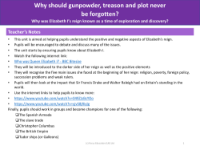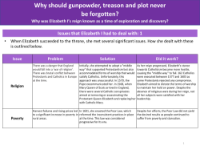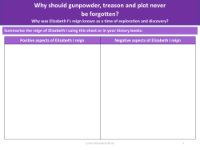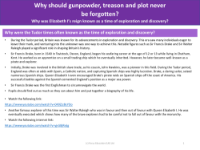The reign of Elizabeth I - Info pack
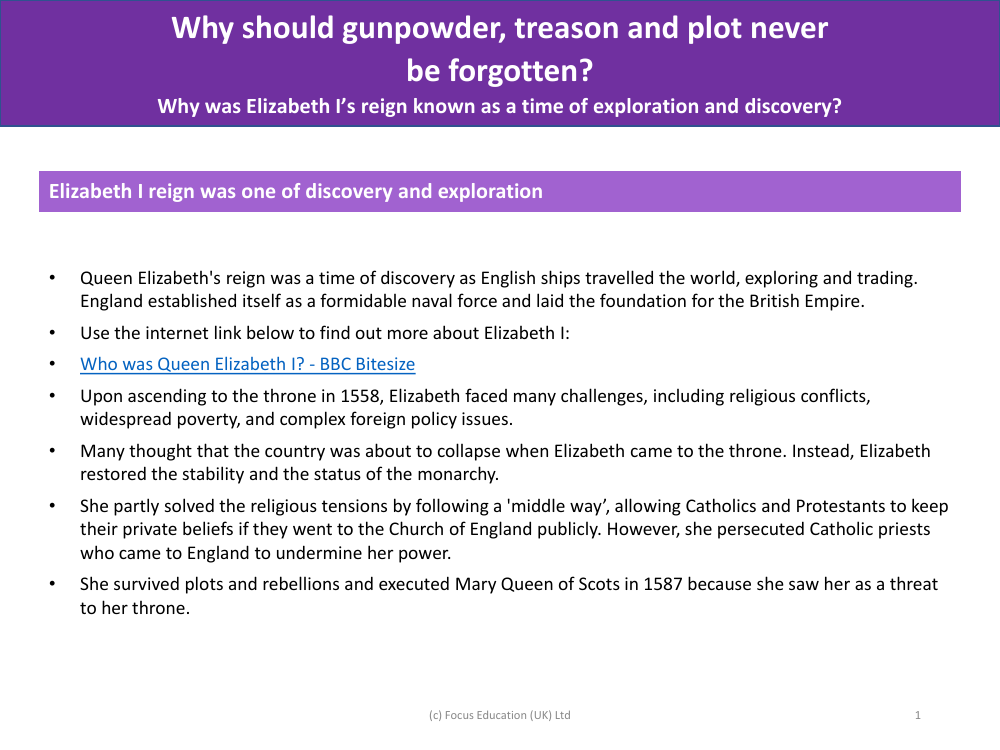
History Resource Description
The reign of Elizabeth I is often celebrated as a golden era of English history, marked by significant achievements in discovery and exploration. During her time on the throne, which began in 1558, England saw its ships sail across the globe, engaging in trade and establishing the nation as a prominent naval power. These voyages of exploration were instrumental in laying the groundwork for what would become the British Empire. Elizabeth I's ascension to power brought with it a myriad of challenges, including religious strife, poverty, and intricate foreign affairs. Despite early fears of national collapse, Elizabeth I managed to restore stability and reinforce the monarchy's prestige.
Elizabeth's approach to the religious divide in England was to implement a 'middle way', which sought to appease both Catholics and Protestants. She required public attendance at the Church of England while allowing individuals to maintain their private beliefs. However, her reign was not without severity; she dealt harshly with Catholic priests who threatened her rule and ultimately had Mary Queen of Scots executed in 1587, viewing her as a rival to the throne. The Queen's governance was also characterized by a robust network of spies to ensure her security, and she exercised firm control over Parliament, even to the point of arresting dissenting members. Notably, her reign witnessed the defeat of the Spanish Armada, a significant victory that bolstered England's naval reputation and was seen as both a monumental success and a stroke of luck.



